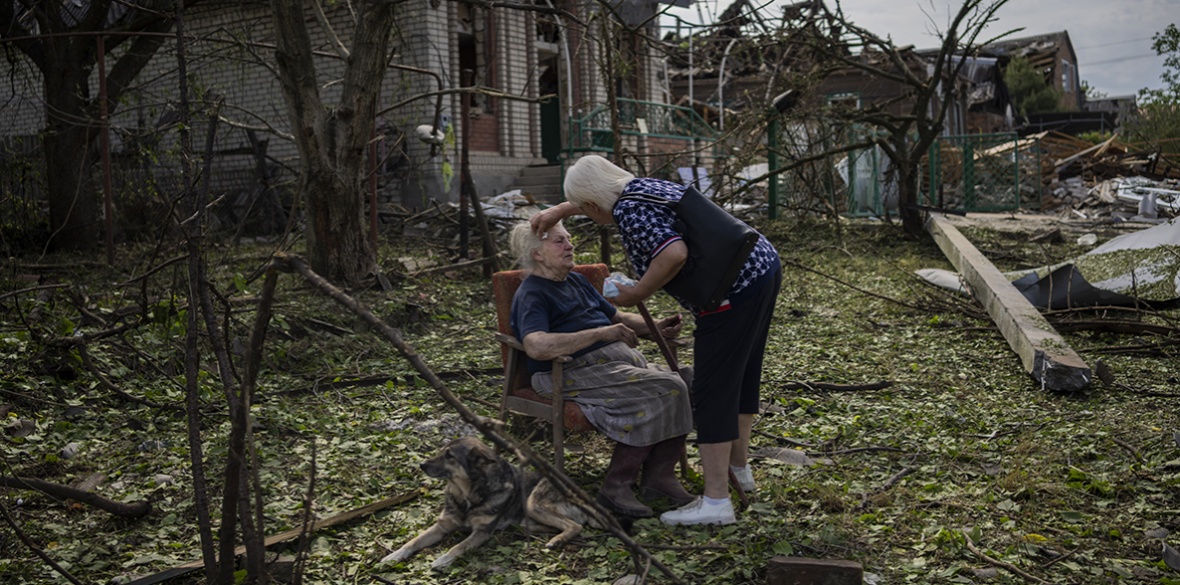TO THE German military theorist Clausewitz is attributed the expression “the fog of war.” His actual phrasing is that: “War is the realm of uncertainty; three-quarters of the factors on which action in war is based are wrapped in a fog of greater or lesser uncertainty.”
Ukraine’s military decision-making is itself surrounded by a fog of uncertainty so impenetrable that Pentagon officials have a better idea of what the Russians are up to than whatever its proxies in the Ukraine armed forces are planning and executing.
The New York Times headline makes it explicit: “US lacks a clear picture of Ukraine’s war strategy, officials say.” The strap line spells it out: “Intelligence agencies know far more about Russia’s military, even as the US ships billions of dollars in weapons to the Ukrainians.”
This newspaper made it clear at the very beginning that the most sceptical eye should be cast over whatever the protagonists in this conflict say. Now we hear that the human rights chief of Ukraine’s Rada has been sacked after she admitted fabricating atrocity stories to put pressure on public opinion in Nato states to boost arms exports.
In forming a balanced judgement on the course of these events — even being able to form a reasonably accurate picture of the circumstances which led to this war — the British public are perhaps the least well served in the whole of the Atlantic Alliance.
French and German citizens hear of their leaders attempts to find a negotiated settlement to the complex issues which first resulted in an international treaty reached in Minsk in 2015. Hungarians hear a different account of the issues because their country has its own issues with the Kiev government and is more economically integrated with Russia than is even Germany.
Outside of the Nato states and the white bastions of the former British empire the world stands aside.
Even Ukrainians, most of whom either speak Russian or understand it, have access to Russian broadcasts and are perhaps better able to know what is actually going on, even as their leaders present the surrender of the Nazi battalion at Mariapol as an “evacuation.”
Will the British media report what the legal authorities in the Donbass do with the ideologically committed members of the Azov battalion who we briefly saw led away to captivity?
It will be humiliating for these people to have their tell-tale tattoos displayed on Russian TV and undoubtedly an affront not only to any remaining dignity but also their rights as prisoners of war.
It will be no less humiliating for the cold war combatants of the British media (and their echo chambers on the pro-Nato ultra-left) who have been downplaying for months the reality that proto-fascist irregulars have been armed and provisioned by Nato states.
Our media and Establishment present an unbroken front of one-sided, partial, misleading and downright specious commentary. Serious analysis is the private preserve of military and intelligence think tanks where professional opinion is that the war is going badly for the Ukrainians and that much of the misleading chatter about the prospects of an ultimate victory for Ukrainian arms is fantasy.
Johnson’s government is even more belligerent than the think tanks with which the US arms industry surrounds Washington’s legislators, while Liz Truss encouraged the deluded to volunteer for Ukraine’s foreign legion of wannabe Rambos some of whom are now sentenced to death.
And Keir Starmer does his bit for the war effort by attacking the Stop the War Coalition and holding his anti-war backbenchers hostage.











